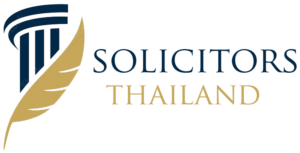The Multiple Entry Tourist Visa (METV) remains one of the most practical ways for foreign nationals to visit Thailand repeatedly for tourism, family visits, short medical care and other non-work purposes without reapplying for a new visa on every trip. This guide explains what the METV actually gives you, who can apply, the usual documentary and financial requirements, entry-and-stay mechanics per visit, extension and re-entry tactics, enforcement risks to avoid, and pragmatic planning tips for people who want reliable medium-term access to Thailand.
What the METV is — the practical product
The METV authorizes multiple entries into Thailand during the visa validity window; each entry normally permits a stay of up to 60 days (subject to local immigration officer discretion) and the visa itself is typically valid for six months from issue, though some embassies/consulates may offer slightly different validity windows or administrative options. The METV is explicitly a tourist/visitor visa — it does not grant work rights and cannot be used as a substitute for a work visa or permanent-resident status. Apply at a Royal Thai Embassy or Consulate (or through the official e-visa portal where supported).
Who uses the METV and when it makes sense
METV is a sensible choice when you plan multiple short trips to Thailand within a short period (for example, a few long weekends plus a longer summer visit) and want to avoid repeated single-entry filings. It’s also used by medical tourists who need to leave and re-enter for staged procedures, by people with family in Thailand who travel back and forth, and by frequent tourists who don’t want to rely on visa-exemption stamps alone. If you expect to stay continuously for long periods (more than 90–180 days without leaving), a different visa class (long-stay, retirement, digital-nomad LTR/DTV, or work routes) may be more appropriate.
Typical documentary requirements (what embassies commonly ask for)
Exact documentary lists vary by mission, but the staples are consistent across most Royal Thai Embassies and Consulates:
-
Valid passport (generally with at least 6 months validity and sufficient blank pages).
-
Completed visa application form and recent passport photo.
-
Proof of onward/return travel (round-trip ticket or onward ticket out of Thailand).
-
Proof of adequate funds — many posts require a recent bank statement or solvency certificate (some missions require a minimum balance shown over several months; e.g., $2,000 or the equivalent is often the floor for single applicants but check your local post). Some embassies request the last three to six months of bank statements.
-
Employment or student proof (letter from employer or school) or, where applicable, copy of U.S. green card / visa for applicants applying from the U.S. (varies by post).
-
Consular fee (the MFA page historically listed a THB 5,000 fee as a general reference point; convert to your local currency and check the post for the exact charge and accepted payment methods).
Because consular practice differs, always consult the specific Royal Thai Embassy or Consulate where you will apply and follow their checklist exactly.
How long you can stay per entry — extensions and timing
On each METV entry the standard period granted is up to 60 days from the date of entry. You may apply once at a local Immigration Office in Thailand to extend a single entry by an additional 30 days, producing a de-facto maximum of roughly 90 days on a single visit (immigration discretion applies). If you leave and re-enter (a new entry under the same METV), you again typically receive up to 60 days for that leg. Keep copies of your arrival stamps and evidence of lawful exit-and-re-entry — the immigration stamp is the official record used for extensions and for any future border checks.
Validity windows, re-entry practice and practical tips
-
Visa validity vs stay lengths: the visa’s calendar validity (e.g., six months) limits the period during which you can make entries; any stays must commence before the visa expires. Plan your trips so that any planned re-entry falls inside the visa validity window.
-
Keep travel evidence: immigration officers commonly ask for onward travel and proof of funds. Keep printed or mobile copies of return tickets, hotel bookings and recent bank statements at hand.
-
Avoid serial “border runs” as a strategy: repeated short exits and re-entries to reset your permitted stay can attract scrutiny. If your travel pattern appears to circumvent long-stay controls, be prepared for questions and possible refusal of entry at the port.
-
If you anticipate long continuous stays, consider other visas: the Destination Thailand Visa (DTV) and other long-term options allow 180 days per entry and may be more suitable for extended stays or work-from-Thailand arrangements.
Switching status, work prohibition and tax considerations
The METV is a visitor visa only — you cannot legally engage in gainful employment while on this visa. If you plan to work, consult immigration counsel about switching to a non-immigrant visa and applying for a work permit (the METV itself will not make you eligible). Also, prolonged physical presence in Thailand can create tax-residency consequences (180 days in a tax year is the usual Thai residency test). If you expect to be present for long periods, get tax advice early.
What can go wrong — common refusal and enforcement triggers
-
Insufficient evidence of funds or onward travel. Be ready to show stable bank balances and a genuine onward itinerary.
-
Misuse of the visa (work, business activity). Immigration and labor enforcement act on complaints; activities outside the visa’s permitted uses risk fines, deportation and bans.
-
Overstaying. Overstays lead to fines per day, possible detention, deportation and entry bans for repeat or lengthy violations. Apply for extensions well before your stamp expires.
-
Visa application errors. Mismatched names, missing signatures, or outdated passports are frequent grounds for delay or refusal — follow the embassy checklist closely.
Application channels, fees and processing times
Most Royal Thai Embassies and Consulates process METV applications in person or via accredited visa services; Thailand’s official e-visa portal also handles many tourist visa types depending on post availability. Processing time varies by mission (from a few working days to several weeks in peak season). Confirm fees and payment methods with the local post; consulates often publish country-specific requirements and up-to-date fee schedules.
Practical checklist before you apply
-
Check the specific Royal Thai Embassy/Consulate checklist for your country.
-
Get a scanned, printed and translated pack: passport, photos, bank statements (3–6 months), return/onward ticket, employer or student letter (if applicable).
-
Budget for the consular fee and possible service-agent costs.
-
If you plan long continuous stays, compare METV vs long-stay visas (DTV/LTR/retirement) before applying.

